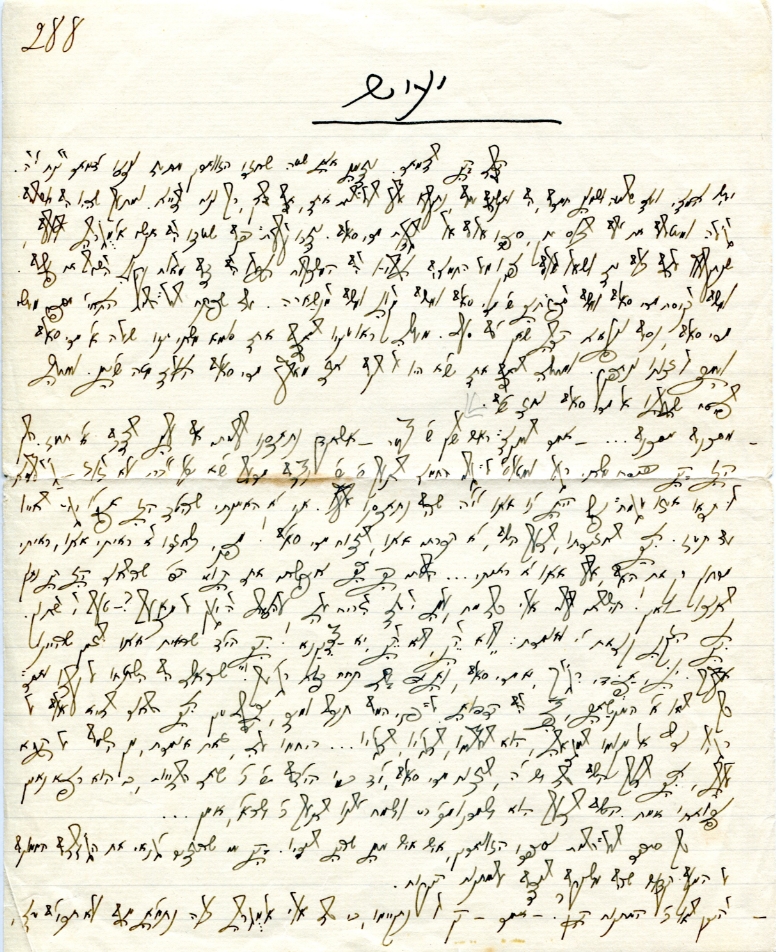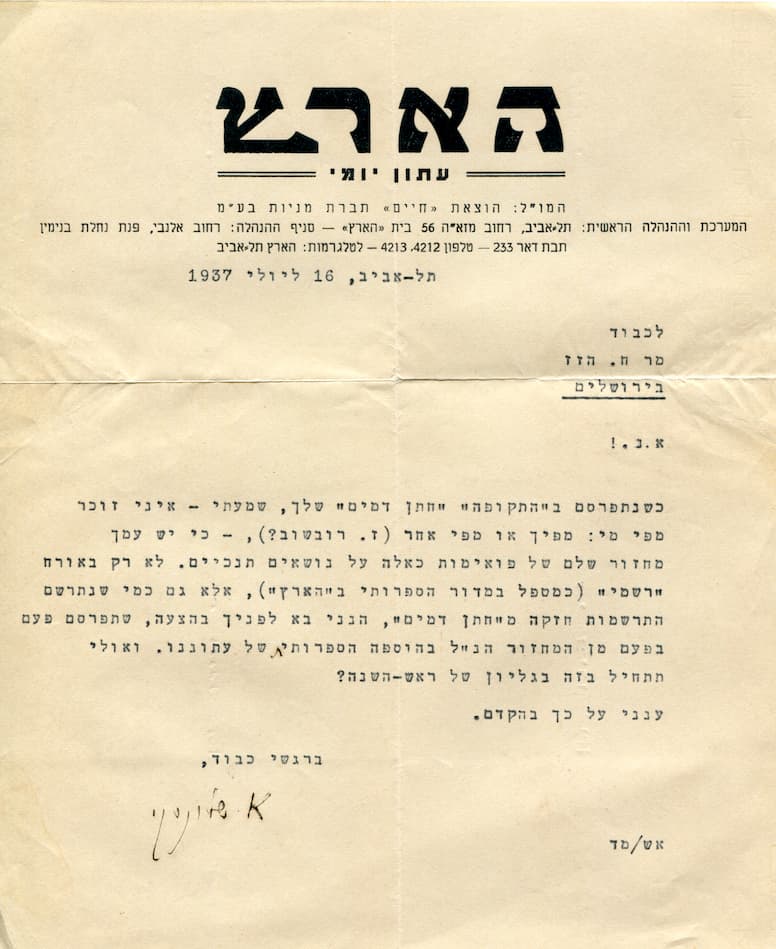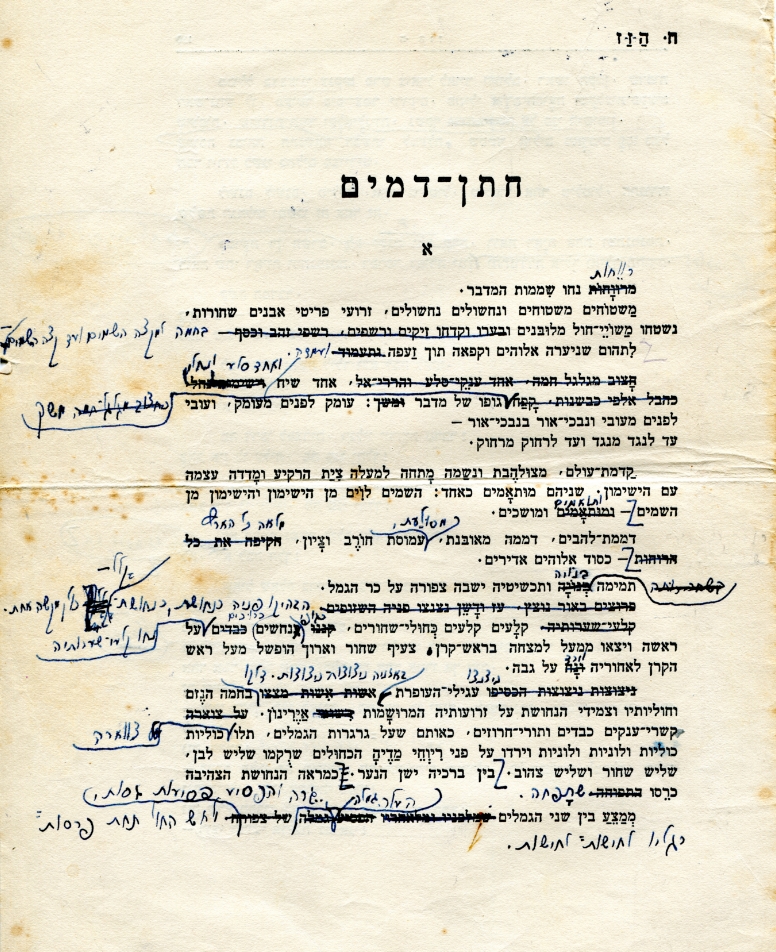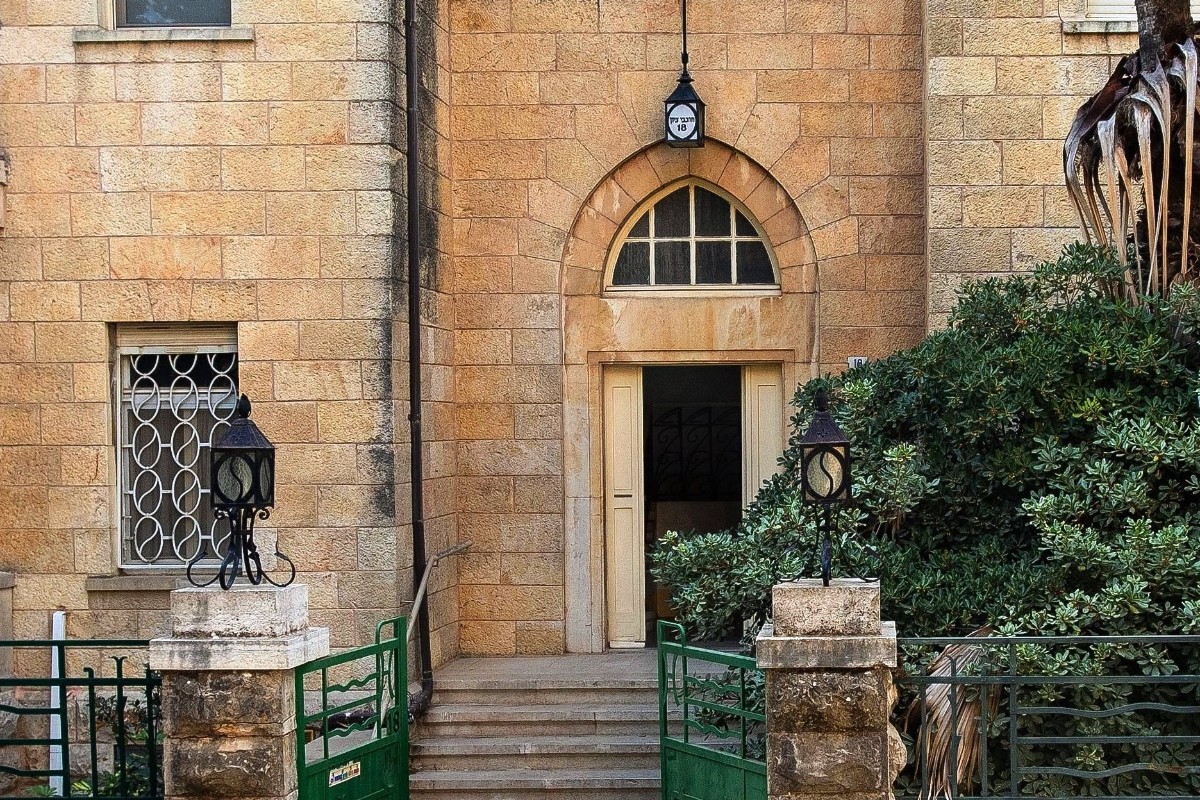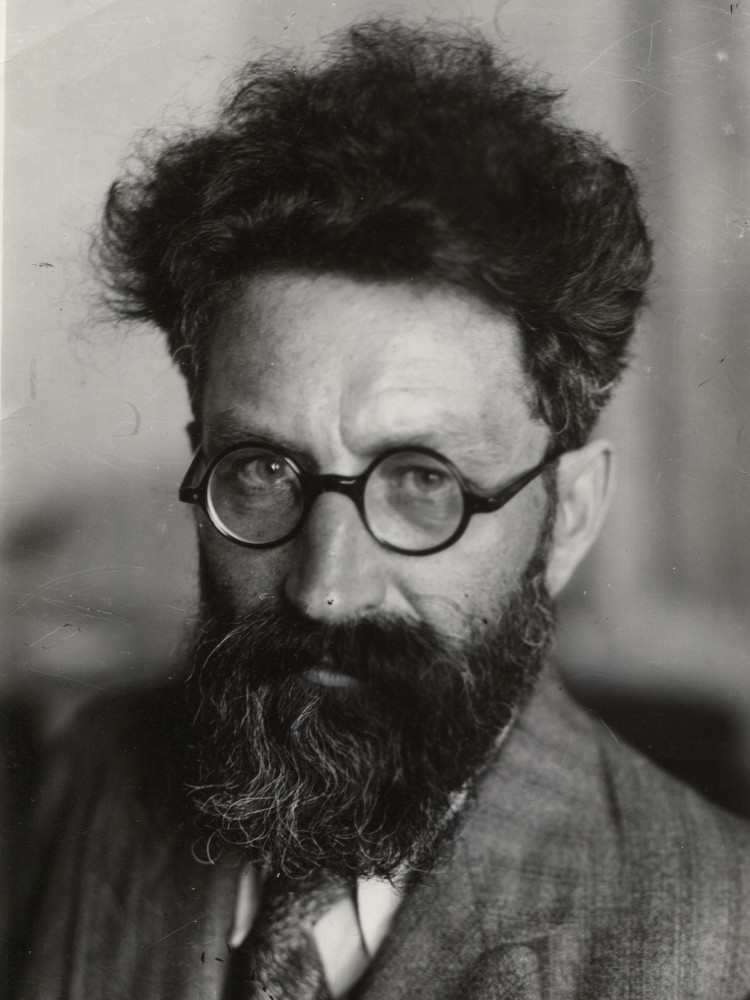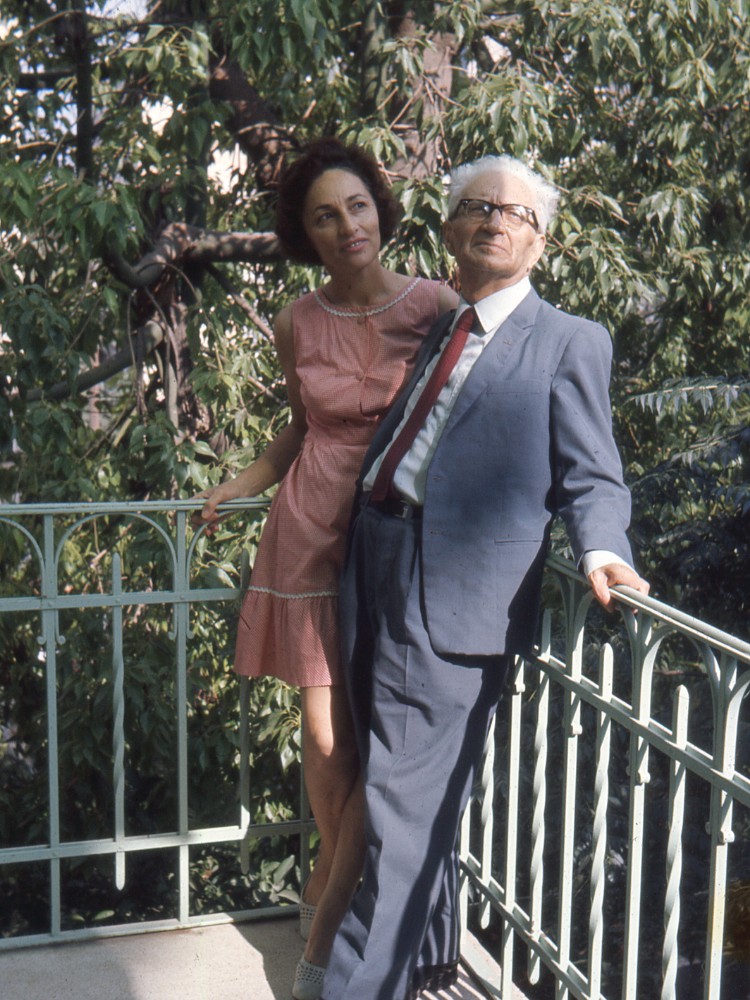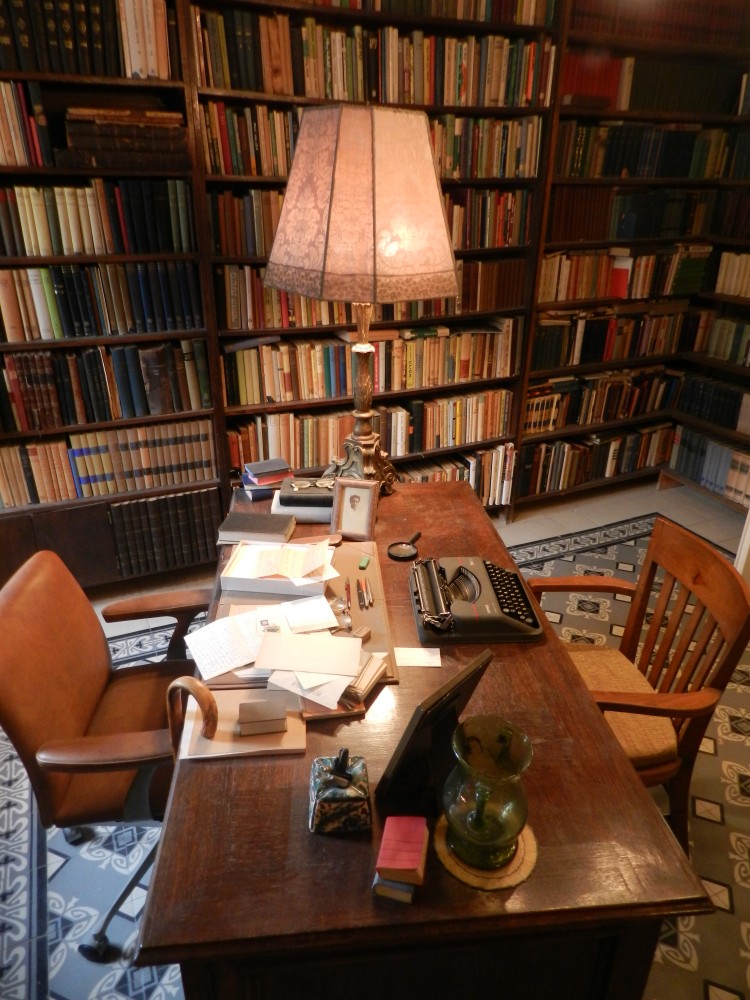Haim Hazaz was one of Israel’s greatest authors of all time. He was the first laureate of the Israel Prize for Literature (1953) and one of the prominent intellectuals who shaped Israeli culture.
Haim Hazaz was born in Russia in 1898. In the wake of the Bolshevik Revolution and the ensuing civil wars, he made his way to Turkey, and from there to France. During his nine years in Paris, he devoted himself to his literary work and achieved recognition as a leading Hebrew language writer.
In the spring of 1931, he immigrated to Palestine and settled in Jerusalem. For sixteen years, he moved from one Jerusalem neighborhood to another. Thus, he became familiar with various Jewish communities, and especially with Yemenite immigrants, among whom he lived. His two great novels portraying Yemenite life, Thou That Dwellest in the Gardens (translated into English by Ben Halpern and published under the title Mori Sa’id) and Yaish, were inspired by this turbulent period in his life. 
Other major works that were translated into English include: the play, The End of Days, a drama taking place against the backdrop of the Messianic movement in 17th century Germany, and the novel, Gates of Bronze, which gives a panoramic vision of the shtetl's disintegration in the maelstrom of the Russian Revolution.
Many of his short stories were also translated into English, some of them published in the acclaimed collection, The Sermon and Other Stories.
Hazaz’s works often include philosophical discussions articulated through highly structured scenes and carefully controlled characterization. His fiction portrays Jewish life in various diasporas, from Russia to Yemen and from France to Turkey. Hazaz also pays homage to the Land of Israel, and the city of Jerusalem in particular. The depth of Jewish history also finds expression throughout his work.

In its variety of characters and plots, in its nuances, colors, shades and sweeping topics, this is the broadest narrative ever created by a single Israeli author, and it bears the unmistakable emblem of classic Jewish literature.
Haim Hazaz passed away in 1973, in Jerusalem, the city where he lived and worked most of his life. His works, which were translated into numerous other languages in addition to English, won him honorary degrees and worldwide fame.
In 1951, Hazaz married Aviva Kushnir (née Ginzburg-Peleg), his right-hand in his endeavors as an author and public figure, and an impressive intellectual in her own right. Hazaz bequeathed his literary inheritance to his wife, and entrusted her with the preparation of his unpublished manuscripts for printing.
